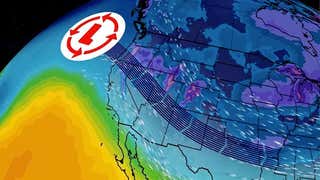

US
°C





Buyers at Peterhead fish market inspect the latest catch in Peterhead, Scotland. In the region, North Sea fish stocks are a major concern. (Photo by Jeff J Mitchell/Getty Images)
Overfishing is a big problem: More than 85 percent of the world's fisheries have been pushed beyond their limits, requiring action plans to restore them — and save some species — according to the .
But recently there's been a rare bit of good news regarding sustainable fishing. The U.K.'s Marine Conversation Society recently removed the North Sea cod out of the red, a level-5 alert, according to the MCS's seafood rating system. North Sea cod is now an amber level 4, meaning populations are showing signs of improvement. That's good news for fish and chips lovers, though the fish should still be eaten occasionally and with care.
“It’s fantastic to see this fishery finally off the red list. Years of sacrifice and a lot of hard work have led to population increases above dangerously low levels. Whilst this certainly is a milestone for North Sea cod, the job is not done yet. Efforts of recent years need to continue in order for the fishery to head towards the green end of the spectrum,” MCS Fisheries Officer, Samuel Stone, said .
This rating change does not signal a green light for all cod. An additional nine species of cod that are commonly consumed in the U.K. are still rated “red,” an indication that their populations are experiencing sustained overfishing. As much, consumers across the globe should watch where their cod comes from.
“These nine cod stocks now need some of the attention that North Sea cod has had over the last decade in order to turn things around,” Stone said. “Whilst these stocks are far smaller than the North Sea stock, they still play a very important role in the local marine ecosystem and greater efforts are needed to recover these stocks.”
In the U.S., Pacific cod is the second most-common fish harvested off of Alaska, where the species accounts for two-thirds of the world's Pacific cod supply. 's Seafood Watch database recommends selecting this species over other types of cod and avoiding Atlantic-harvested cod species for the sake of sustainability.
MORE ON WEATHER.COM:












